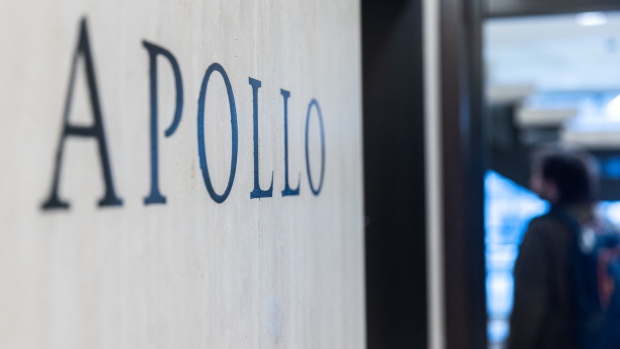Sep 15, 2022
Apollo Taps Bond Investors for M&A as Banks Retreat From Risk
, Bloomberg News

(Bloomberg) -- Diminishing appetite and higher fees amongst banks to underwrite debt deals for their clients is resulting in private equity giants such as Apollo Global Management Inc. sidestepping banks and tapping investors directly for their acquisition needs.
Banks arranging the 350 million euro ($349 million) high-yield bond sale for Apollo-owned Lottomatica SpA, including Barclays Plc and Deutsche Bank AG, are leading it on a so-called best efforts basis, according to people familiar with the matter. In other words, they’re helping to raise the financing from investors without taking any of the risk on their own balance sheets.
The deal, which is earmarked to pre-fund expected and near-term acquisitions, is a transaction that could have typically been underwritten by banks a year ago, when rates were low and appetite for higher risk debt was buoyant. The Italian lotto company launched a deal directly into the market this week that priced with an attractive yield of around 9.75%. At that price it accounts for a premium of around 2% versus the company’s existing bonds and investor demand of more than 1 billion euros resulted in the price narrowing.
An Apollo spokesperson declined to comment.
Worries about a recession and rampant inflation in the US and Europe have meant that banks have increased fees and demanded greater protection amid ongoing market volatility. Some have reduced or even halted underwriting new deals amid of the worst slumps for investment bank deal-making since the global financial crisis. In the second quarter, the big six US banks all took substantial hits on corporate loans — a mix of leveraged finance and other loans.
As a result, private credit funds -- Apollo included -- are facing more demand than they can supply, and are becoming increasingly selective about the companies they back.
Industry-wide jitters about underwriting new deals are exacerbated by delays in offloading the billions of dollars worth of hung debt on banks’ balance sheets. Looking to the rest of the year, banks are unlikely to fund big deals until at least the fourth quarter as economic uncertainty hangs over financing, David Sambur, Apollo’s co-head of private equity, said in an interview with Bloomberg TV’s Sonali Basak at the SuperReturn North America conference in New York.
Read More: Apollo’s Sambur Sees Banks on Sidelines for LBOs for Months
Apollo initially sounded out some investors for a larger deal size of 500 million euros, according to people familiar with the matter. Meanwhile, Lottomatica increased the size of its revolving credit facility by 75 million euros to 297 million, according to analysts at CreditSights.
There were investor orders for a large portion of the deal during the pre-marketing phase, giving banks confidence that they could sell the deal before officially launching to the market, some of the people said. The new funds will be held in escrow and only released to pursue strategic acquisitions.
“We believe that Lottomatica could unveil a deal in the next six months, and that it is raising funds ahead of a potential market shutdown owing to a recession early next year,” analysts at Lucror Analytics said in a note to clients on Thursday.
Lottomatica’s management said in an investor presentation that it was evaluating around 24 opportunities in the European gaming space, according to a Lucror note sent to clients. They added that 18 are in the 20-150 million euro EBITDA range, and 10 are being actively pursued. “Apollo remains a committed investor and will inject cash if needed,” the analysts said in the note, citing the firm’s management.
Apollo bought Lottomatica in May 2021 and drew market scrutiny when it sold a deal the following November to pay itself dividends that exceeded the purchase price, with the private equity firm effectively recouping its investment just a few months after the acquisition.
Read More: Apollo Pitches a Bond Deal Pushing Dividend Paydays to the Max
The deal tested investor demand for risk after a two-month hiatus in bond issuance in Europe’s high-yield market. Despite the recent tightening, credit risk remains at historically high levels, with those for investment-grade and junk-rated debt more than doubling since the start of the year.
©2022 Bloomberg L.P.






